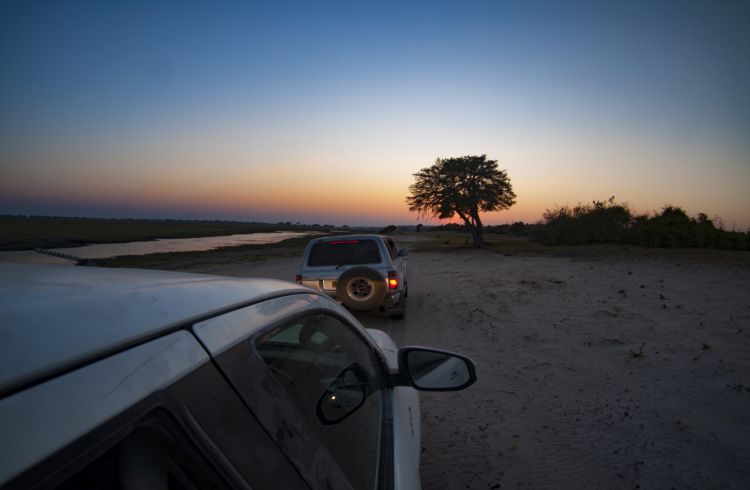A road trip to Tanzania is a once-in-a-lifetime experience. You will explore some of the most pristine national parks in the world, where wildlife roams freely, as it has for centuries. However, with these natural wonders come important responsibilities. To help preserve these areas for future generations, it’s crucial to be mindful of key sustainability issues. Below are highlight of what not to do on your Tanzania adventure, providing you with practical tips to ensure your trip is enjoyable, environmentally friendly, and respectful of the wildlife and local communities.
DON’T ENCOURAGE YOUR GUIDE TO DRIVE OFF-ROAD
Our safari guides are strictly instructed not to drive off-road. While it may seem harmless to move a few meters closer to get a better view of a lion, this seemingly ‘small’ action can crush birds’ nests or kill small animals like lizards, snakes, frogs, or tortoises. With nearly a million visitors visiting Tanzania’s national parks each year, the collective damage can be devastating. Particularly with the high volume of visitors. For instance, the Serengeti alone attracts over 300,000 visitors annually. To ensure these precious ecosystems remain intact, it’s important to follow key guidelines. Because even small mistakes can lead to serious consequences
DON’T TAKE ANYTHING FROM THE PARKS
It may be tempting to take a bone, stone, or leaf as a memento from the park. However, removing anything from a national park disrupts the natural balance, especially when you consider the number of visitors doing the same. In addition to harming the ecosystem, it’s also illegal. Objects of natural origin are categorized as “forbidden souvenirs.” While on a beach vacation in Zanzibar, please resist the urge to collect seashells, starfish, or any marine life as souvenirs. With over a million people visiting Zanzibar annually, the impact on marine life can be immeasurable. If everyone takes a seashell, the entire ecosystem could be destroyed.
Also, Zanzibar’s customs service treats these items just like other forms of wildlife, and attempting to take them home can result in serious issues at the airport. For the sake of leaving the underwater world as it is, leave all marine wildlife where it belongs.
DON’T MAKE LOUD SOUNDS
If an animal isn’t paying attention to you, resist the urge to whistle, honk, or shout to get its attention these sounds are unnatural in the savannah and can stress or disturb the animals. Furthermore, this kind of behavior is disruptive to other safari-goers who are trying to quietly enjoy the experience.
NO FLASH PHOTOGRAPHY
If you plan a night, early morning, or late evening safari, avoid using your camera’s flash. In fact, don’t use it in the national parks at all. Bright lights can be extremely harmful to animals, especially nocturnal species. Animals like bush babies and leopards rely on their night vision to hunt and navigate. Flashlights can temporarily blind them, disorienting them and making it harder for them to survive in their environment
DON’T TAKE PHOTOS OF INDIVIDUALS WITHOUT PERMISSION
If you come across a Maasai warrior in traditional dress and want to capture the moment, always ask for permission first. Never photograph children without parental consent. While Tanzanian children, like kids everywhere, may be curious and seem willing, they often don’t fully understand what’s happening or what they’re agreeing to. Respect their privacy and dignity.
DON’T BUY SOUVENIRS FROM IVORY
If you are ever offered anything made from elephant tusks, always refuse. All ivory is strictly prohibited in Tanzania, and severe consequences await anyone caught with it at the airport.
DON’T LITTER
Ensure that any trash you have is handed to your guide. On safari, you may simply give it to a driver or dispose of the rubbish in a lodge.
When climbing Mt. Kilimanjaro, you’ll find special recycling bins, and our staff carries bags for waste collection. After each expedition, all trash is properly disposed of in a sustainable manner.
DON’T FEED THE ANIMALS
While it might seem harmless to give a monkey an apple, feeding animals causes more harm than you think. Human food can be dangerous for wildlife and encourages dependency on tourists. This often leads to aggressive behavior. In Tarangire National Park, for example, monkeys have been known to snatch food from visitors, biting and scratching them in the process, in some cases, rangers have been forced to shoot overly aggressive animals. To prevent this, never feed the wildlife.
AVOID DRESSING INAPPROPRIATELY
On mainland Tanzania, revealing clothes may raise a few eyebrows but generally won’t cause much trouble. However, in Zanzibar, with its predominantly Muslim population, dressing modestly is more important, especially in places like Stone Town. While you’ll be fine in beachwear along the coast, it’s best to dress more conservatively during city trips. Show respect for local customs by avoiding overly revealing attire.
DONT SUPPORT ILLEGAL BEHAVIOR
If you witness anything concerning during your trip, such as child exploitation, harassment, or any other illegal activity, please inform your guide immediately. They will pass the information on to us, and we will ensure it reaches the appropriate authorities. Your vigilance helps protect the community and its most vulnerable members.
AVOID CERTAIN HOTELS WITH WILDLIFE ON SITE
Some businesses in Tanzania falsely present themselves as wildlife advocates by keeping wild animals on their premises under the guise of rehabilitation. They often allow visitors to pet the animals and take pictures, but this is deceptive. In reality, there isn’t a single certified private wildlife rehabilitation facility in Tanzania—all legitimate operations are managed by the Tanzania Wildlife Research Institute. Such hotels exploit wildlife to attract tourists, and when the animals grow too large, they are often sent to zoos or hunting reserves
Conclusion
A road trip through Tanzania offers an incredible opportunity to explore stunning landscapes and diverse wildlife, but it also comes with the responsibility to protect and respect the environment and local communities. By avoiding actions like off-roading, disturbing wildlife, and supporting unethical practices, you can ensure that your visit contributes positively to the country’s conservation efforts and supports sustainable tourism. Follow these simple guidelines to make the most of your journey while preserving the beauty of Tanzania for future travelers.








